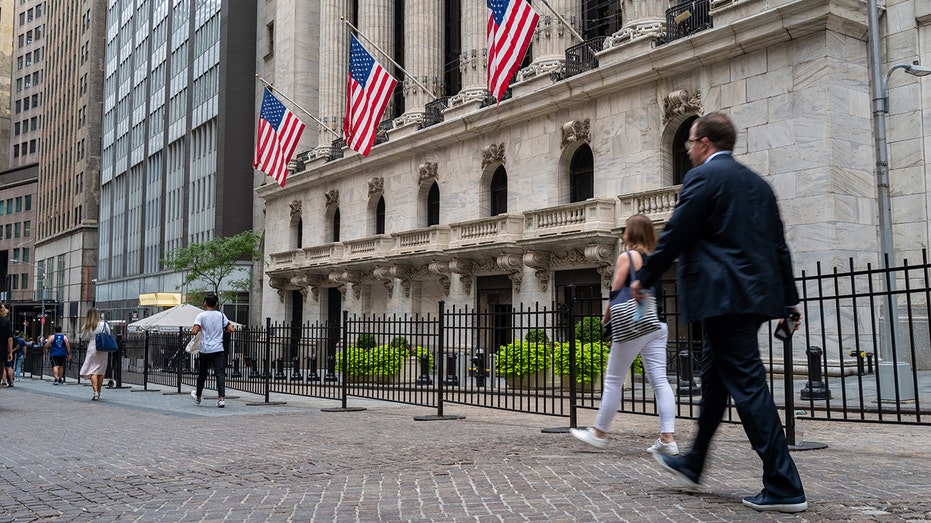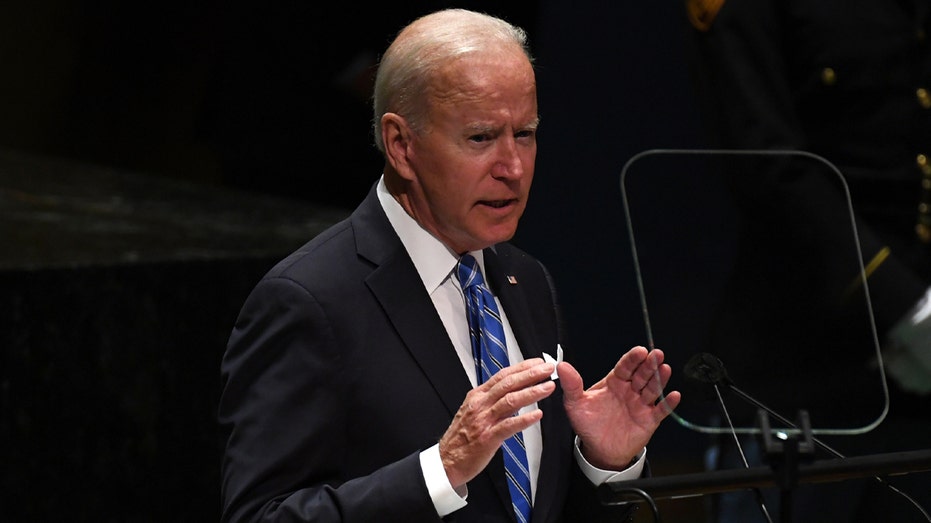Is the United States entering a recession?
Recession technically defined by two consecutive quarters of negative growth
Changing inflation starts with putting a 'stake in the heart of the American consumer': Business adviser
Gerald Storch, former Toys 'R' Us CEO and current Storch Advisors CEO responds to news that consumers are shifting to less expensive items amid inflationary pressures.
Is the U.S. economy headed for a recession, or is it already in one?
That was the big question before of the Commerce Department's release on Thursday of the highly anticipated second-quarter gross domestic product reading, which showed that economic growth shrank 0.9% in the period from April to June.
Economic output already fell over the first three months of the year, with GDP – the broadest measure of goods and services produced in the U.S. – tumbling 1.6%, the worst performance since the spring of 2020, when the economy was still deep in the throes of the COVID-induced recession.
Recessions are technically defined by two consecutive quarters of negative economic growth and are characterized by high unemployment, low or negative GDP growth, falling income and slowing retail sales, according to the National Bureau of Economic Research (NBER), which tracks downturns.
HOW HOUSING IS FUELING SEARING-HOT INFLATION

People walk outside of the New York Stock Exchange (NYSE) on July 25, 2022 in New York City. ((Photo by Spencer Platt/Getty Images) / Getty Images)
The decline in economic growth in the second quarter meets the technical, but unofficial, criteria for a recession, which requires a "significant decline in economic activity that is spread across the economy and that lasts more than a few months." Still, the NBER — the semi-official arbiter — may not confirm it immediately as it typically waits up to a year to call it.
The NBER has also stressed that it relies on more data than GDP in determining whether there's a recession such as unemployment and consumer spending, which remained strong in the first six months of the year. It also takes into consideration the depth of any decline in economic activity.
"Thus real GDP could decline by relatively small amounts in two consecutive quarters without warranting the determination that a peak had occurred," the nonprofit said on its website.
The committee does not meet regularly, only when members decide it is warranted.
"The committee is not trying to make a real-time determination of are we in a recession at the moment, right?" Jim Poterba, an MIT economist and the president of the NBER, told NPR this week. "We're waiting until the data settle down and we have high confidence to be able to make these turning point calls with very little concern about doing this in real time."
There are conflicting signs about the economy's health, fueling debate over the state of the economy: The number of Americans filing for unemployment benefits has gradually increased, companies have announced layoffs or hiring freezes, and the housing market is softening. At the same time, unemployment remains near a historic low, and consumers are still spending heavily, despite scorching-hot inflation.
Economists remain divided over whether the economy is officially in a recession or not, but they largely agree that avoiding a downturn in the near future will nearly impossible as the Federal Reserve tries to bring inflation under control by cooling consumer demand. Central bank policymakers raised the benchmark interest rate by 75 basis points in both June and July for the first time since 1994 and signaled that another increase of that magnitude is possible in September.
"Policymakers will no doubt be tying themselves in knots trying to explain why the U.S. economy is not in recession," said Seema Shah, chief global strategist at Principal Global Investors. "However, they make a strong point. While two consecutive quarters of negative growth is technically a recession, other timelier economic data are not consistent with recession."
FED PREPARES ANOTHER MEGA-SIZED RATE HIKE, RISKING DEEPER DOWNTURN
Hiking interest rates tend to create higher consumer and business loan rates, which slows the economy by forcing employers to cut back on spending. Mortgage rates have nearly doubled from one year ago, while some credit card issuers have ratcheted up their rates to 20%.

U.S. President Joe Biden addresses the 76th Session of the U.N. General Assembly on September 21, 2021 at U.N. headquarters in New York City. ((Photo by Timothy A. Clary-Pool/Getty Images) / Getty Images)
Fed Chairman Jerome Powell told reporters on Wednesday that he does not believe the U.S. economy is in a recession, citing the low unemployment rate and the 2.7 million jobs created in the first half of the year.
"I do not think the U.S. is currently in a recession, and the reason is there are too many areas of the economy that are performing too well," Powell said. "This is a very strong labor market. … It doesn’t make sense that the economy would be in a recession with this kind of thing happening."





















